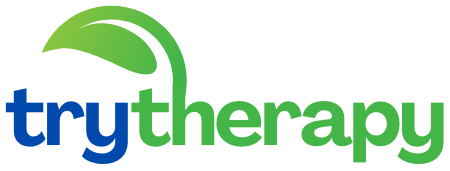When it comes to mental health, I’ve tried it all: therapy, meditation, journaling, you name it. But the thing that surprised me the most? Laughter. Yes, laughter. As someone who’s struggled with anxiety for years, I never thought something as simple as a good laugh could make such a difference. Let me tell you, laughter therapy isn’t just a gimmick, it’s a game-changer.
The Science of Laughter: Why It Works

Here’s the thing: laughter isn’t just fun; it’s science. When I laugh, my brain releases a flood of feel-good chemicals like endorphins, dopamine, and serotonin. These are the same neurotransmitters that antidepressants target. At the same time, laughter reduces stress hormones like cortisol. It’s like a natural reset button for my mood.
And get this even fake laughter works. Research from Stanford University shows that just *anticipating* Something funny can trigger these benefits. So, even if I’m forcing a chuckle, my brain doesn’t know the difference. It’s like tricking myself into feeling better. Who knew my brain could be so easy to fool?
How Laughter Helped Me Build Resilience
Laughter doesn’t just give me a quick mood boost, it helps me build resilience. When I laugh, I create distance from my problems. It’s like stepping back from a messy painting to see the whole picture. Suddenly, that thing that felt overwhelming doesn’t seem so bad.
Studies back this up, too. A study in the Journal of Psychiatric Research found that people who regularly incorporate humor into their lives have better emotional regulation and are less likely to dwell on negative thoughts. For me, laughter became a lifeline during my social anxiety days. I dreaded small talk, but comedy shows? Those were my safe spaces. Laughing with a room full of strangers made me feel connected without the pressure of opening up.
How I Use Laughter Therapy Every Day
You don’t need a formal laughter therapy session to reap the benefits though those are great if you can find one . I started small by creating a “humor first aid kit” a collection of things that never fail to make me laugh. For me, it’s a playlist of ridiculous cat videos and a few episodes of my favorite sitcom. When anxiety hits, I turn to my kit like it’s a life raft.
Laughter yoga is another tool I’ve tried. It’s exactly what it sounds like combining laughter with deep breathing exercises. The idea is that your body can’t tell the difference between real and fake laughter, so even if you’re forcing it, you’re still getting the benefits. I’ve done it at home, and while my dog gives me weird looks, it works.
I’ve also started humor journaling. Instead of venting about my day, I try to find the absurdity in it. Like the time I spilled coffee on my laptop and spent an hour Googling “how to fix a coffee-soaked keyboard” while crying and laughing at the same time. Writing it down with a humorous twist helped me see the situation in a new light.
Laughter Therapy and Traditional Treatment: A Perfect Pair
Let’s be clear: laughter therapy isn’t a replacement for traditional mental health treatments, especially for serious conditions. But it’s an incredible complement. Think of it as the cherry on top of your mental health sundae. It’s accessible, free, and doesn’t require a prescription. All you need is a willingness to find the humor in life, even when it feels impossible.
The best part? You don’t have to wait for laughter to find you. You can seek it out. Watch a funny movie, call that friend who always makes you laugh, or even just smile at something silly. It’s like building muscle the more you practice, the easier it gets.
So, here’s my challenge to you: What made you laugh today? And how can you find more of those moments tomorrow? Because sometimes, the best medicine isn’t in a bottle, it’s in a good, hearty laugh.
References:
Journal of Psychiatric Research. “Humor as Intervention: The Therapeutic Benefits of Laughter in Mental Health Treatment.”
Clinical research findings https://www.psychiatry-research.edu/humor-therapy
National Institute of Mental Health. “Complementary Approaches to Mental Health Care.” Government health resources https://www.nimh.nih.gov/complementary-approaches
Stanford University School of Medicine. “Neurochemical Response to Humorous Stimuli.” Academic research database https://www.stanford.edu/medicine/research

